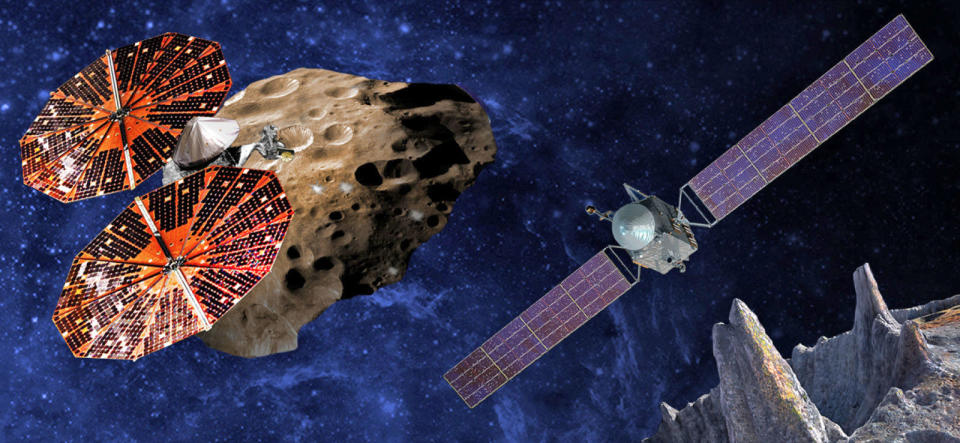NASA announces two new missions to study the early solar system
Lucy and Psyche will look for history in metal asteroids.

Right behind yesterday's Explorer mission announcement, NASA has just announced two new Discovery missions to study the very early history of our solar system -- the period about 10 million years after the hydrogen and helium in the sun burst into life. Known as Lucy and Psyche, the two missions will peer back in time by analyzing several metallic asteroids floating in the main asteroid belt and further out in Jupiter's orbit.
Lucy is a robotic spacecraft that will continue the success of NASA's New Horizons mission (currently on its way to photograph the Kuiper Belt) when it launches in October 2021. The Lucy spacecraft is expected to reach the main asteroid in 2025 and will spent the next few years studying six different Jupiter Trojan asteroids, which circle the sun in two different clusters that share Jupiter's orbit. "Because the Trojans are remnants of the primordial material that formed the outer planets," Lucy mission principal investigator Harold F. Levison explained, they hold vital clues to deciphering the history of the solar system."
Lucy will be carrying updated versions of the RALPH and LORRI science instruments onboard New Horizons and will also be borrowing some team members from asteroid-bound OSIRIS-Rex mission that launched in late 2016.
A few years after Lucy, Psyche will begin its journey towards the giant metal asteroid known as 16 Psyche in 2023. Made up of iron and nickel, 16 Psyche circles the sun at about three times the distance of the Earth and is believed to be the frozen metal core of a Mars-sized planet that was exposed by some violent interplanetary events billions of years in the past. "16 Psyche is the only known object of its kind in the solar system," Psyche's principal investigator Lindy Elkins-Tanton said, "and this is the only way humans will ever visit a core. We learn about inner space by visiting outer space."
The Psyche spacecraft will arrive at the asteroid in 2030 after flying by Mars in 2025.
